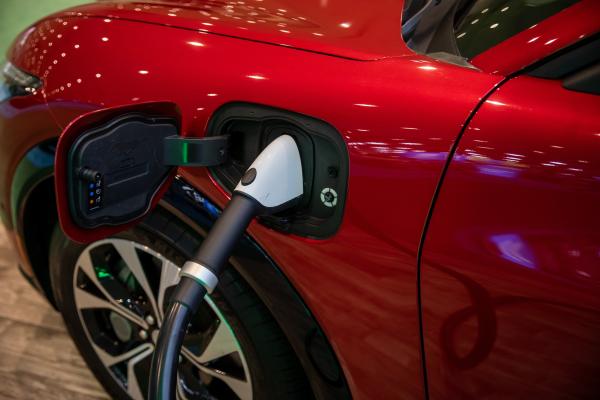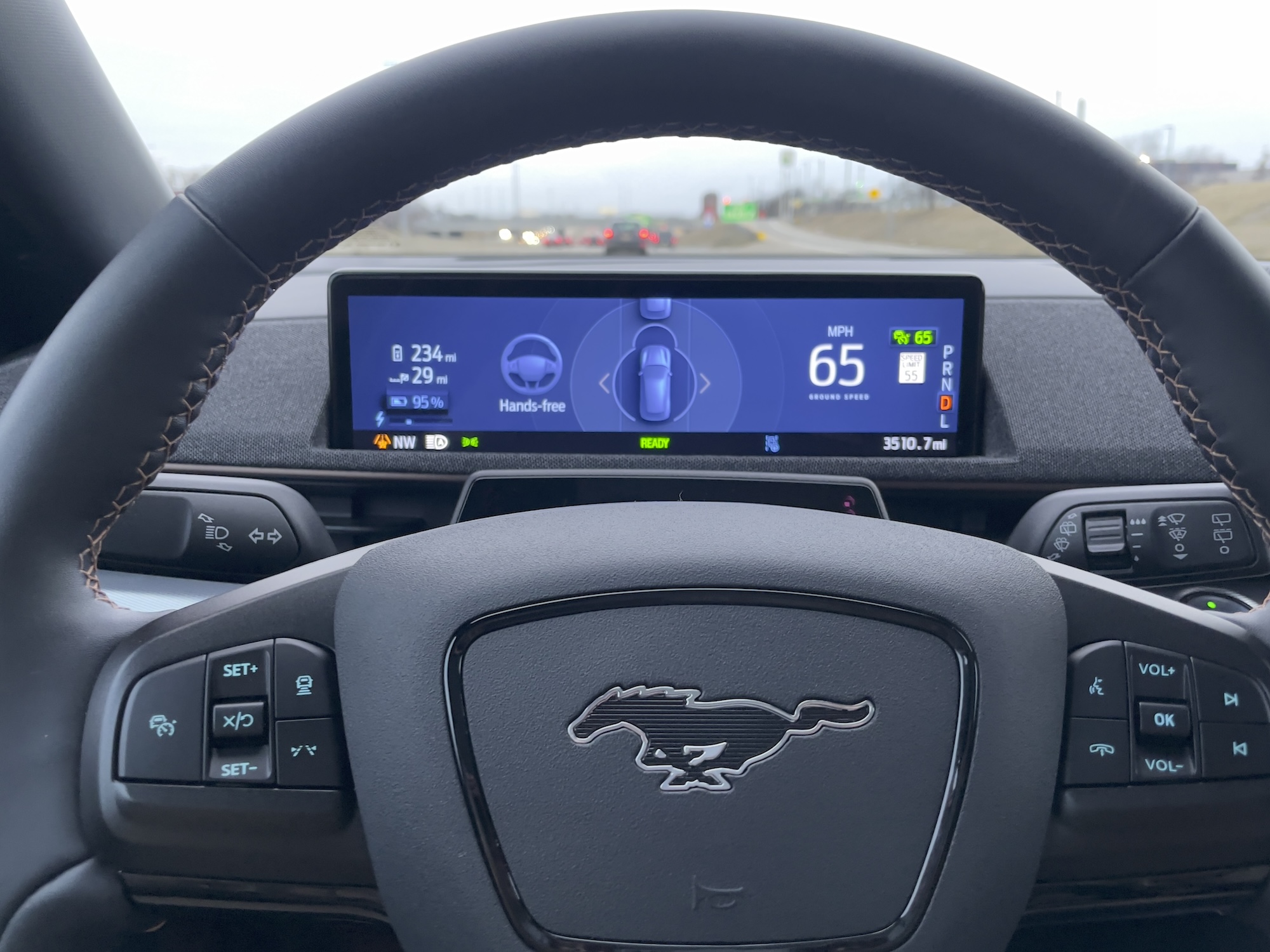TechCrunch Mobility is a weekly newsletter dedicated to all things transportation. Sign up here — just click TechCrunch Mobility — to receive the newsletter every weekend in your inbox. Subscribe for free.
Welcome back to TechCrunch Mobility — your central hub for news and insights on the future of transportation. This week’s news includes a BMW security lapse that exposed sensitive information, blowback from a federal agency over an anti-Tesla Super Bowl ad and a new federal investigation into Fisker.
But first, some words about my recent visit to Detroit, where I met with a few Ford executives to find out what they’re focused on for 2024 and beyond.
It’s safe to say that Chinese EV automakers and Tesla are top of mind; and in the view of Ford execs, a low-cost EV and cutting-edge software are the best ways to thwart those threats. The company’s EV skunkworks project, which recently came to light, is charged with that task.
Ford CFO John Lawler didn’t mince words during an interview at the company’s headquarters.
“We have to assume that eventually they’ll be here,” Lawler said. “China has been looking for its global champion for decades. They couldn’t get there with a traditional gas vehicle; they saw the writing on the wall as early as 2010 that electric was the way to go and they have subsidized and focused on that since then.”
Lawler said Chinese automakers are now competitive. Now armed with production capacity and “fantastic” designs, China is pushing into other regions.
“It’s not a short stakes game; it’s long,” Lawler said. “So everybody’s thinking about the next couple of years, they’re thinking about the next 25, 30 years. They’re not gonna sweat what’s happening right now. They’ll keep building their footprint and building their brands up, keep building their technology and building out the advanced development of their vehicles, and eventually, there won’t be any stopping it.”
China and Tesla aren’t the only concerns taking up their collective gray matter. Ford CEO Jim Farley is also intent on clawing back $2 billion in cost savings across the company’s industrial system. A big part of that is improving the quality of new vehicles — which are directly tied to warranty costs — and was a point he emphasized during a recent interview at Wolfe Research’s Global Auto and Auto Tech Conference in New York.
Let’s go!
A little bird
A little bird pointed us to a recent filing regarding Faraday Future that got our attention. For the unfamiliar, Faraday Future is an EV startup that went public in 2021 via a merger with a special purpose acquisition company. Once upon a time, Faraday Future was about as buzzy as a startup could get. But years of internal drama, a revolving door of executives and federal investigations has the company hanging on the end of its financial threads.
Now it appears the company is at risk of losing its LA headquarters. The company’s landlord filed a lawsuit seeking to repossess the commercial space after Faraday Future failed to pay rent. The current bill is close to $1 million.
Got a tip for us? Email Kirsten Korosec at kirsten.korosec@techcrunch.com or Sean O’Kane sean.okane@techcrunch.com. If you prefer to remain anonymous, click here to contact us, which includes SecureDrop (instructions here) and various encrypted messaging apps.
Deal of the week
No deal of the week! Instead, here’s a list of deals that got my attention.
Celadyne, a hydrogen fuel cell startup, raised $4.5 million in a seed round was co-led by Maniv and Dynamo Ventures, with major participation from EPS Ventures.
Revel, the Brooklyn-based startup initially known for its fleet of rentable blue electric mopeds, is reportedly trying to raise $200 million in equity, Bloomberg reported. The company shutdown its shared moped business in November and is now trying to build out electric ride-hailing and EV fast-charging businesses.
Roam, a Kenyan EV startup, has raised $24 million in a Series A round, including up to $10 million debt commitment from the U.S. International Development Finance Corporation. Equator, an Africa-focused climate tech VC fund, led the round At One Ventures, TES Ventures, Renew Capital, the World We Want and One Small Planet also participated.
Skylo Technologies, a direct-to-device satellite connectivity service provider, raised $37 million in a round co-led by Intel Capital and Innovation Endeavors and joined by BMW i Ventures, Samsung Catalyst Fund, Seraphim Space, and Next47.
Velocys, a startup developing sustainable aviation fuel, raised $40 million from Carbon Direct Capital, Lightrock, GenZero and Kibo Investments.
Notable reads and other tidbits
ADAS
GM is expanding access to Super Cruise, with plans to let drivers use the hands-free advanced driver-assistance system on about 750,000 miles of roads in the United States and Canada. The expansion will nearly double the automaker’s Super Cruise network by 2025 and includes rural and minor highways.
The National Transportation Safety Board ordered the Dawn Project organization to stop using its seal after it appeared in a Super Bowl ad that called for consumers to boycott Tesla.
Autonomous vehicles
Cruise named Steve Kenner, an autonomous vehicle industry veteran who has held top safety roles at Kodiak, Locomation, Aurora and Uber’s now-defunct self-driving division, as its first “chief safety officer.” My take: This is a position that Cruise should have had years ago. Meanwhile, Cruise lost another key employee. Carl Jenkins, head of hardware at Cruise, resigned from the company.
May Mobility laid off 40 people, or about 13% of its staff.
San Francisco Giants are swapping out the Cruise robotaxi uniform patch for a less controversial one that advertises Chevrolet, another GM brand.
Waymo voluntarily recalled the software that powers its robotaxi fleet after two vehicles crashed into the same towed pickup truck in Phoenix, Arizona, in December. It’s the company’s first recall. As reporter Sean O’Kane notes, the recall comes at a time when self-driving cars are facing intense scrutiny following a series of high-profile crashes and controversies, including this week when a crowd of people in San Francisco swarmed, vandalized and torched a Waymo robotaxi.
Electric vehicles, charging & batteries
EVs had a white-hot 2023 — but data in December shows sales are cooling, Automotive News reported. New EV registrations rose 52% in 2023 over the previous year, according to data from S&P Global Mobility. EVs now have 7.7% of the U.S. light-vehicle market, up from 5.7% a year earlier.
Lucid Motors dropped the price of its luxury Air sedan by thousands of dollars. Lucid also got the attention of the National Highway Traffic Safety Administration this week. The regulators opened an investigation into a Lucid windshield defroster recall from January, saying it’s “concerned” the company’s over-the-air update solution doesn’t go far enough to fix the problem. Is the NHTSA starting to push back against OTAs?
The NHTSA opened a second investigation into EV startup Fisker‘s Ocean SUV, after the agency received four complaints about the vehicle rolling away unexpectedly, resulting in one injury. Fisker also received a noncompliance notice from the New York Stock Exchange because its stocks closed under $1 for the past 30 days, according to a regulatory filing.
Stellantis, the parent company of brands like Jeep and Chrysler, announced it will adopt Tesla’s North American Charging Standard (NACS). Stellantis is the last major Western automaker to announce compatibility with NACS.
Ride-hailing and ride-sharing
HopSkipDrive, the youth ride-share startup, beat two new key California emissions standards in 2023, an accomplishment the company believes will bolster its case for relying more on shared passenger vehicles to get kids and teens to and from school.
This week’s wheels
During my short trip to Michigan, I used a 2023 Ford Mustang Mach-E to drive to various meetings in Dearborn and Detroit. (The press car came courtesy of Ford.)
My primary interest was in BlueCruise, the hands-free active driver-assistance system. I had a lot of time to test it out thanks to a number of 20- to 30-mile commutes, most of which were on highways. I was testing the BlueCruise 1.3 version, which accelerates or brakes to maintain a selected following distance from a vehicle ahead, keeps the vehicle centered in the lane and steers. When the driver hits the turn signal, the vehicle will change lanes. It also will make a suggestion to pass if traffic is slow.
What I liked: It’s simple to engage BlueCruise and crystal clear when the system is handling the driving. The passing is crisp and vehicle doesn’t ping pong within the lane, which is common in other systems. My one picky critique is that the word “ready” is illuminated in green in the instrument cluster right below BlueCruise, when it is engaged (see photo). That “ready” has nothing to do with BlueCruise and is instead meant to let the EV driver know their vehicle is ready to drive. I’m sure drivers will get used to it, but I could also see it causing some confusion.
A feature I loved: I could take over the steering and BlueCruise would remain engaged. I know that in some circles this is frowned upon because the driver might get confused. However, I loath how often I accidentally disengage other systems like Tesla’s Autopilot by moving the steering wheel just a skosh too much.




